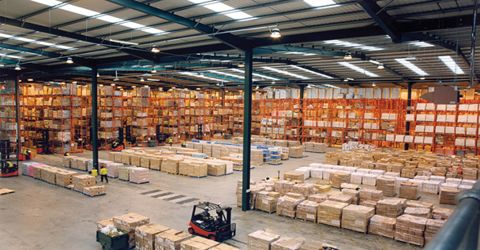Types of Warehouses
(i) Private warehouses: Private warehouses are operated, owned or leased by a company handling their own goods, such as retail chain stores or multi-brand mull-product companies. As a general rule, an efficient warehouse is planned around a material handling system in order to encourage maximum efficiency of product movement. The benefit of private warehousing includes control, flexibility and other benefits like improved dealer relations.
(ii) Public warehouses: Public warehouses can be used for storage of goods by traders, manufacturers or any member of the public after the payment of a storage fee or charges. The government regulates the operation of these warehouses by issuing licenses for them to private parties. The owner of the warehouse stands as an agent of the owner of the goods and is expected to take appropriate care of the goods. These warehouses provide other facilities also like transportation by rail and road. They are responsible for the full safety of the goods.
(iii) Bonded warehouses: Bonded warehouses are licensed by the government to accepted imported goods prior to payment of tax and customs duty. These are goods which are imported from other countries. Importers are not permitted to remove goods from the docks or the airport till customs duty is paid. At times, importers are not in a position to pay the duty in full or do not require all the goods immediately. The goods are kept in bonded warehouses by the customs authorities till the customs duty is paid. These goods are said to be in bond.
(iv) Government warehouses: These warehouses are fully owned and managed by the government. The government manages them through organizations set up in the public sector. For example: Food Corporation, State Trading Corporation and Central Warehousing Corporation.
(v) Cooperative warehouses: Some marketing cooperative societies or agricultural cooperative societies have set up their own warehouses for members of their cooperative society.
















